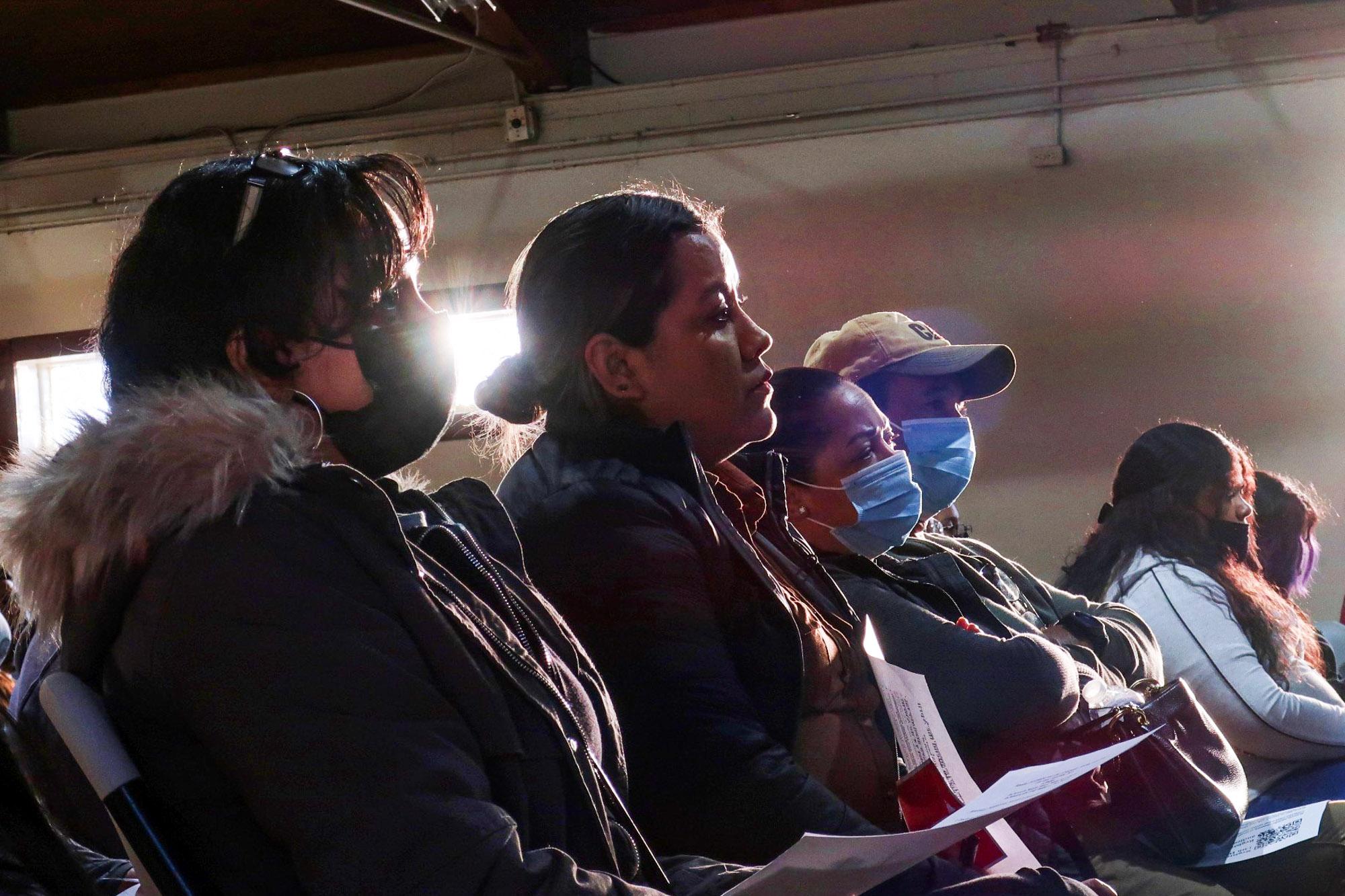
This story was originally published by Chalkbeat. Sign up for their newsletters at ckbe.at/newsletters
The Adams 14 school district failed to show that state intervention caused any real harm or injury and has no basis to sue the state, the Colorado Supreme Court ruled Monday.
The ruling leaves the state’s school accountability system intact but could have larger significance. The justices threw out a longstanding precedent known as the rule of Martin, which said that political entities that are subordinate to the state, such as school districts and counties, can’t sue the state for exercising normal oversight.
The justices also noted that the State Board of Education’s actions toward Adams 14 are allowed under the Education Accountability Act and that Adams 14 did not challenge the legality of the law itself.
Justice Monica M. Márquez wrote the opinion, and all six other justices joined in. There were no dissenting opinions.
“A school district is not injured by receiving a low accreditation rating. A low accreditation rating means that the district will receive additional resources from the state to facilitate improved performance — a process intended to help districts and their students, not harm them,” the court ruling states.
Education Commissioner Susana Córdova said the ruling means school improvement efforts in the district can continue “without the risk of being derailed by pending litigation.”
“We welcome the opportunity to continue to work closely with Adams 14 and build on the current work underway in the school district,” she said in a written statement. “We know that a focus on student achievement by working together is the best way forward for the students, staff, families, and community of Adams 14.”
An attorney for the Adams 14 school district hailed the decision as a victory for local control, even though the justices upheld a lower court’s dismissal of the district’s lawsuit against the state.
“My little school district getting rid of a 53-year-old law that was being used against local governments and local school boards, is a big deal,” Adams 14 attorney Joe Salazar said of the rule of Martin. “Sounds like a good day to me.”
Having had the district’s case thrown out didn’t matter, Salazar said.
Facing widespread opposition within the district and from neighboring communities, Córdova already had backed off a state order that the district should reorganize after years of low test scores. That order prompted the lawsuit in the first place.
“We don’t care; we already defeated reorganization,” Salazar said.
After agreeing with Adams 14 that the rule of Martin was harmful, Monday’s ruling says the state should only use another rule, known as the Wimberly rule, which says that to have standing to sue, a plaintiff must prove injury to a legally protected right. Under that rule, the court found Adams 14 still didn’t meet the bar for suing the state for relief.
“The State Board actions that Adams 14 challenges are expressly permitted or required by the Education Accountability Act, the facial legality of which Adams 14 does not challenge,” the ruling states.
Adams 14 had made several arguments that the Supreme Court grouped into four sets. Among them, the district argued that the state violated the district’s right to local control when the State Board used an external State Review Panel to evaluate the capacity of the district’s leadership and when it reviewed its contracts with partners.
The court ruling states that the district’s right to local control has to be balanced with the state’s obligations to oversee schools, and that in simply reviewing leadership or contracts, the state didn’t actually restrict the district’s operations. The ruling also states that the State Board was following the law in taking those steps.
Another argument Adams 14 made was that the state set cut scores for tests that led to school districts with more students from lower income or non-English speaking families being more likely to earn low ratings, causing the districts harm based on their populations.
In this case, the Supreme Court’s ruling found that the cut scores don’t directly cause a district to lose accreditation or be forced into reorganization. “Many intervening steps must take place,” the ruling states, meaning that having that be the potential injury claimed in the lawsuit was “‘overly indirect and incidental’ and too far removed from the State Board’s use of cut scores” to constitute injury.
In the case of Adams 14, the district has been rated low performing since 2010. It has been under state improvement plans of some sort since at least 2017 and has not yet managed to earn higher ratings.
In 2022, the State Board ordered the district to undergo reorganization with neighboring districts. Reorganization could have meant closing some schools, shifting boundaries, or letting neighboring districts take over parts or all of Adams 14. But the neighboring districts that appointed members to the reorganization committee declared their support for Adams 14, and ultimately, the committee submitted a plan that said any reorganization would be harmful.
The new state commissioner this year approved that recommendation and released the district from that State Order.
Adams 14 is still under another State Board order that requires it to be working with an outside group to manage and improve the district. Adams 14 had been working with TNTP, formerly known as The New Teacher Project, but over the summer, negotiations broke down after the district asked the group to scale back its work in the second year.
The Adams 14 school board approved a new contract with TNTP in September, but state education department staff told the State Board of Education that the contract doesn’t meet State Board requirements. State officials said much of the required work is happening, but some is being handled by other subcontractors or district staff.
And despite the state education department increasing school improvement funding to Adams 14 to a total of $1.2 million, the new TNTP contract is worth just $395,587.
The State Board of Education will hold a rehearing on how to approach school improvement efforts in the district next spring.
Córdova said the State Board will continue to work in compliance with state law and the ruling does not make it easier for school districts to sue the state.
Nonetheless, Salazar said he’s sure the state’s accountability law and system are likely to see more legal challenges.
Yesenia Robles is a reporter for Chalkbeat Colorado covering K-12 school districts and multilingual education. Contact Yesenia at [email protected].
Chalkbeat is a nonprofit news site covering educational change in public schools.








